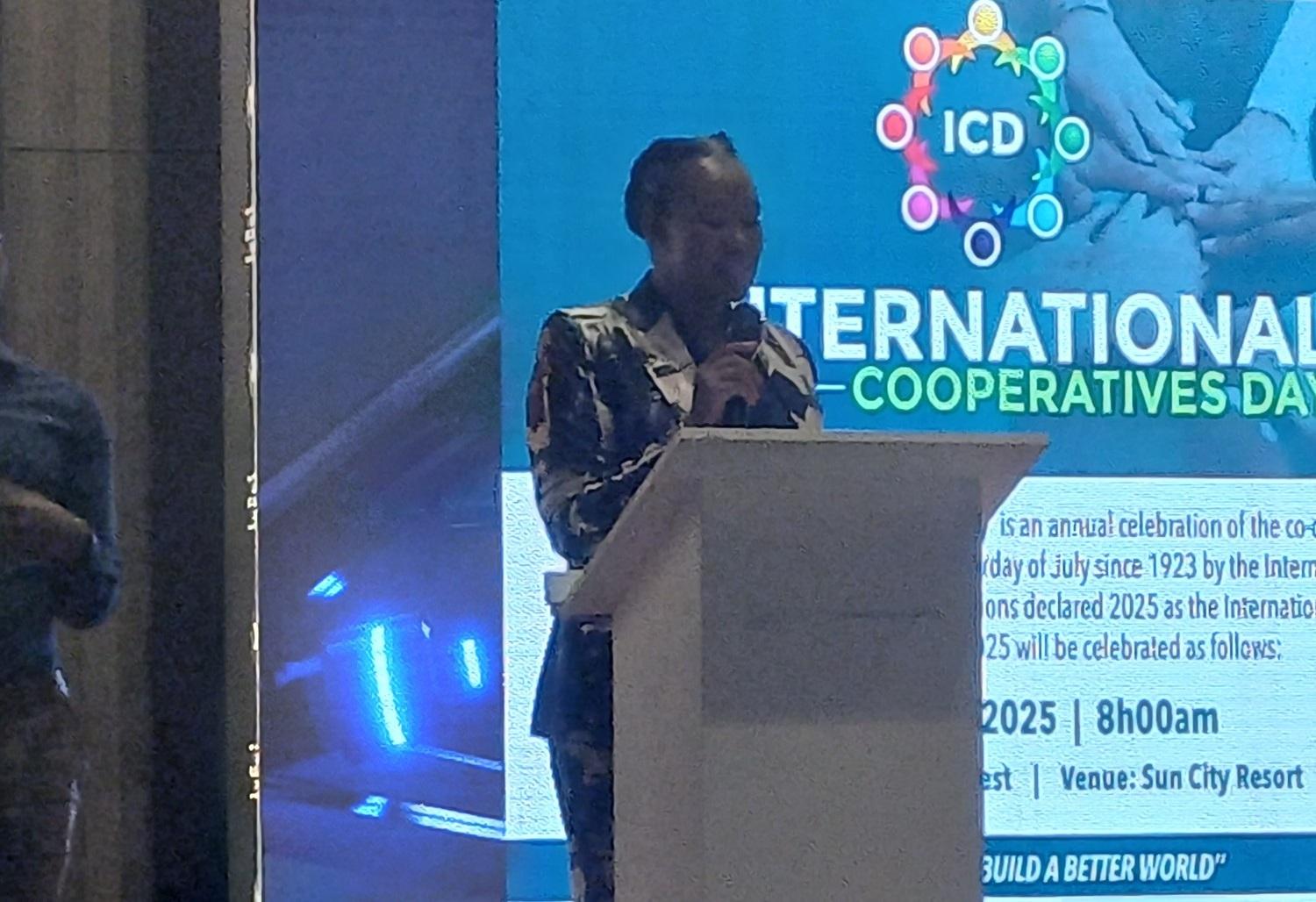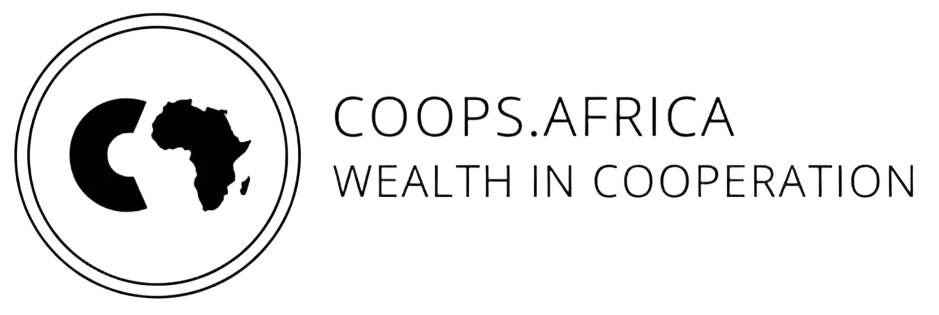Building a Better World Through Cooperatives: From the 2025 ICD Declaration to 2026 Outlook

At the 2025 International Co-operatives Day (ICD), stakeholders in South Africa’s cooperative movement—including cooperators, government, financial institutions, civil society, and development partners—issued a forward-looking declaration. The statement reflects both ambition and realism, drawing on global frameworks such as the Sustainable Development Goals (SDGs), the African Continental Free Trade Area (AfCFTA), and the principles of the International Co-operative Alliance (ICA).
The declaration aligns the cooperative sector with national, continental, and global priorities while keeping equity at the centre—emphasising the empowerment of women, youth, and persons with disabilities. This empowerment is expected to happen through capacity-building, digital inclusion, and entrepreneurship support, three levers that speak to the needs of modern cooperatives navigating an evolving economic landscape.
Breaking Down the 2025 ICD Commitments
The declaration is not abstract; it sets five concrete targets to be achieved by ICD 2026, supported by a structured programme of action.
1. Enhancing Co-operative Market Presence
-
Target: 500 South African co-operatives on digital platforms, with 200 transacting monthly.
-
Analysis: This goal is a recognition that digital markets are no longer optional but essential for survival and growth. The numbers are ambitious yet achievable if platforms like coops.africa gain traction. The focus on consistent monthly activity avoids the trap of passive listing and ensures real economic participation.
2. Strengthening Public Procurement Commitments
-
Target: Governments to document and share procurement baselines from co-ops, aligned with MSME frameworks.
-
Analysis: This is perhaps the most transformative target. If public procurement becomes systematically cooperative-friendly, it could unlock billions of rands in opportunities. Transparency will be key; without measurable baselines, progress will remain rhetorical.
3. Expanding Intra-Africa Trade Linkages
-
Target: At least five South African co-ops linked with counterparts across Africa or the diaspora.
-
Analysis: Though modest in numbers, this is a symbolic entry point into AfCFTA participation. Even a handful of successful partnerships can establish models that demonstrate feasibility, paving the way for scaling up in future years.
4. Promoting Digital Literacy for Youth and Women
-
Target: Certified digital skills training for no fewer than 50 youth and women-led co-operatives.
-
Analysis: This is a practical way of narrowing the digital divide. Fifty co-ops may sound small, but if each represents dozens or hundreds of members, the multiplier effect could be significant. The challenge will be in linking training to direct market opportunities rather than treating it as a tick-box exercise.
5. Building National, Regional, and International Alliances
-
Target: Strengthen cooperative linkages across levels.
-
Analysis: The mention of South Africa considering Associate Membership in the ICA is significant. It signals intent to plug into the global cooperative community, which would enhance learning, advocacy, and legitimacy.
The Programme of Action (2025–2026)
The commitments are backed by an implementation roadmap:
-
National Steering Committee on Co-operatives to oversee consultations, validate plans, and monitor progress.
-
Provincial consultations and round-tables to localise strategies.
-
Mid-year reporting to avoid “year-end surprises” and enhance accountability.
-
Trade facilitation workshops to prepare co-ops for cross-border opportunities.
-
Digital literacy sprints for youth and women.
-
Summit 2026 to review progress and set post-2026 priorities leading to 2030.
This structured approach acknowledges that declarations must be matched with mechanisms of delivery.
Our Outlook to ICD 2026
Looking ahead, the declaration sets the stage for a decisive year. Several outcomes can be anticipated:
1. Digital Transformation Will Deepen
By 2026, if 500 co-operatives are on trading platforms and 200 are transacting regularly, South Africa’s co-op movement will have taken a bold leap into the digital economy. This will not only strengthen local markets but also make international partnerships more feasible.
2. Government Procurement Could Be a Game-Changer
If government follows through on documenting cooperative procurement, it will be a watershed moment. This could establish cooperatives as legitimate suppliers and shift the sector from the margins to the mainstream of the South African economy.
3. AfCFTA Engagement Will Mature
Though the target is just five trade partnerships, the momentum could create a pipeline of intra-Africa cooperative trade. By ICD 2026, we expect to see pilot projects in agriculture, crafts, and services, positioning co-ops as grassroots beneficiaries of AfCFTA.
4. Youth and Women Will Begin to Lead Digitally
Fifty digitally trained co-operatives by 2026 could be the seeding of a new generation of leaders. These groups are likely to become early adopters of fintech, e-commerce, and digital compliance tools, making them the backbone of a modernised cooperative sector.
5. International Alliances Will Expand Opportunities
If South Africa secures ICA associate membership, co-operatives here will gain exposure to global financing models, innovations, and solidarity networks. This will bring fresh credibility and possibly attract investment partnerships.
Risks and Challenges
-
Execution Gaps: Declarations often falter at implementation. Provincial consultations and mid-term reporting will be crucial in avoiding this.
-
Digital Exclusion: Without addressing infrastructure gaps (connectivity, devices, costs), digital inclusion targets may remain symbolic.
-
Government Commitment: Procurement reforms depend on political will, which may fluctuate.
-
Sustainability: Trade partnerships need to move beyond pilots into long-term, commercially viable arrangements.
The 2025 ICD declaration represents a turning point for South Africa’s cooperative movement. By tying local ambitions to the SDGs, AfCFTA, and ICA principles, the declaration situates co-ops within a global framework of solidarity and sustainable development.
By ICD 2026, success will be measured not only in numbers but in the quality of impact: how many livelihoods have improved, how many markets have been penetrated, and how many cooperatives are operating with resilience.
If achieved, these commitments will move co-operatives from the margins of the economy into its mainstream, living up to the ICD 2026 theme: “Co-operatives Build a Better World.”
- Market Reports
- Economic
- Social and Development
- Communication, Marketing & Success Stories
- Regulation
- Outro
- SADC
- African Union



